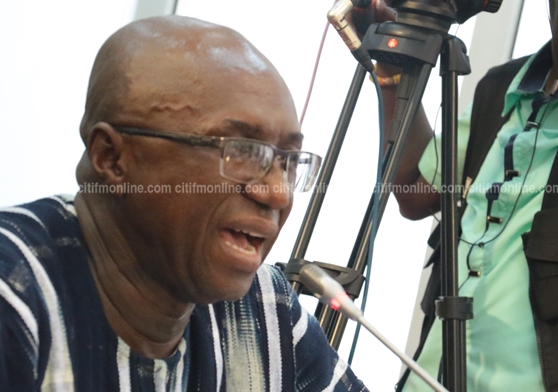
The Interior Ministry has denied rumours that it now listens in on phone conversations and monitors social media activities of Ghanaians.
The Ministry has therefore called on the general public to disregard the news item suggesting it is doing this.
Rumours were rife on social media over the weekend that the Ministry has enforced a new Communications Regulation that entails surveillance of calls and social media interactions by Ghanaians secretly.But according to the Ministry, there was no such regulation.
A statement from the Ministry signed by Mrs. Adelaide Anno-Kumi, the Chief Director, said it would not undertake any such endeavour that amounts to an invasion of the privacy of citizens.
“The Ministry of Interior’s attention has been drawn to a news item making rounds on social media which is alleging that, the Ministry will be enforcing a new Communications Regulation which will entail surveillance of calls and social media platforms by the Ministry of Interior.
“The Ministry wishes to emphatically state that there is no such new communication regulation and thus calls on the general public to disregard the news item. The Ministry wishes to assure the general public that, no one’s communication device, be it mobile hand device, Personal Computer etc. is connected to any system at the Ministry of the Interior,” the statement said.
It added that “in as much as the safety, peace and security of citizens is our primary concern, we will not do anything tantamount to the invasion of the privacy of citizenry and an affront on the respect of the fundamental human rights of the citizenry.”
It further called on the general public to disregard any information within the public domain that suggests that it is secretly monitoring the conversation of Ghanaians.
“The Ministry, therefore, wish to state emphatically and unambiguously that, the news item is false and should be disregarded by the general public. The Ministry takes this opportunity to wish the general public happy Easter celebrations.”
Some Civil Society Organizations (CSOs) and lawyers, forced government to withdraw, review and resubmit a Bill before Parliament to enable a lawful interception of postal packets, and telecommunication messages for the purpose of fighting crime and suppressing organised crime.
The Bill, in its earlier state, was to empower the country’s security agencies to intercept messages linked to money laundering, terrorism, narcotic trafficking, identity theft and were generally for the protection of national security.
–
By: Jonas Nyabor/citifmonline.com/Ghana
Follow @jnyabor


























Facebook
Twitter
Pinterest
Instagram
Google+
YouTube
LinkedIn
RSS